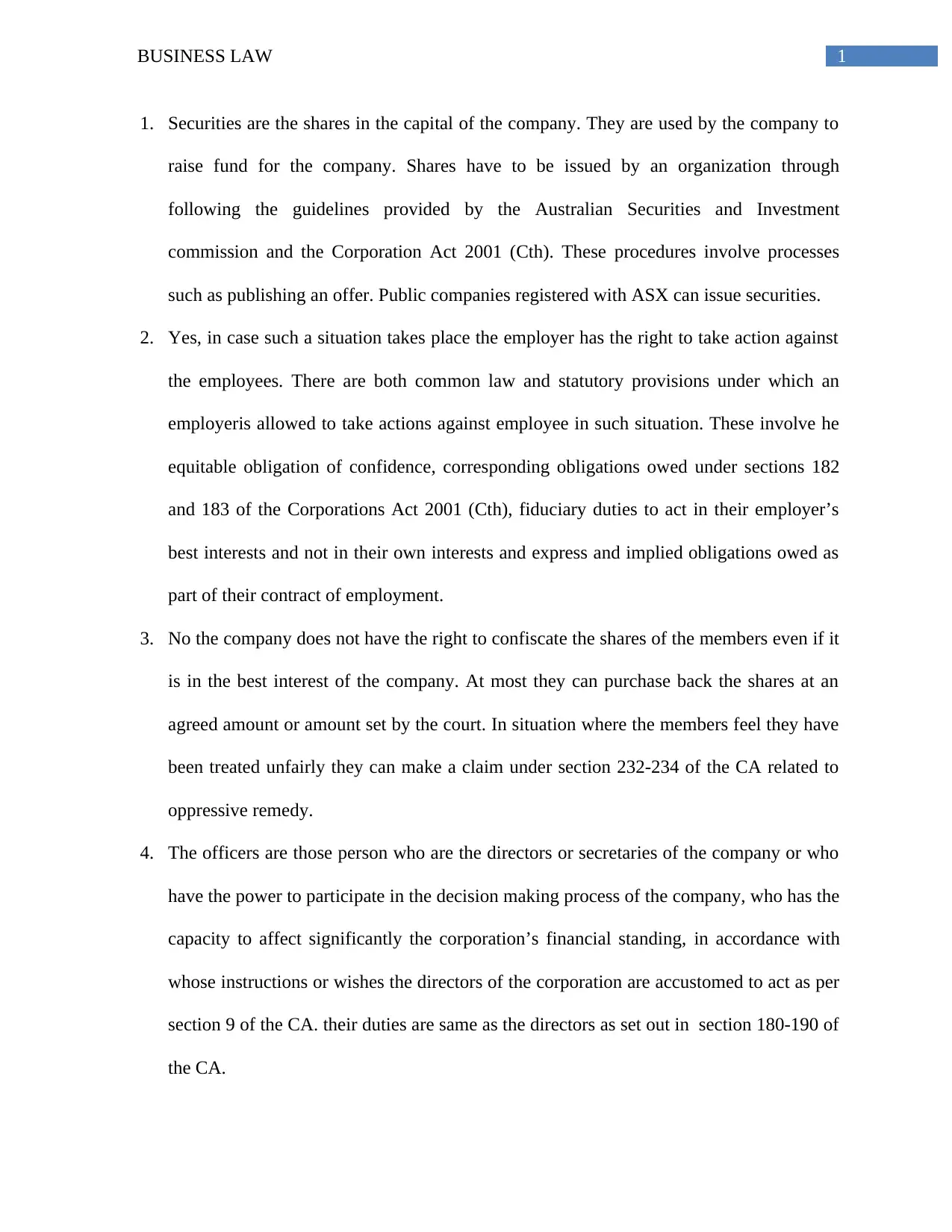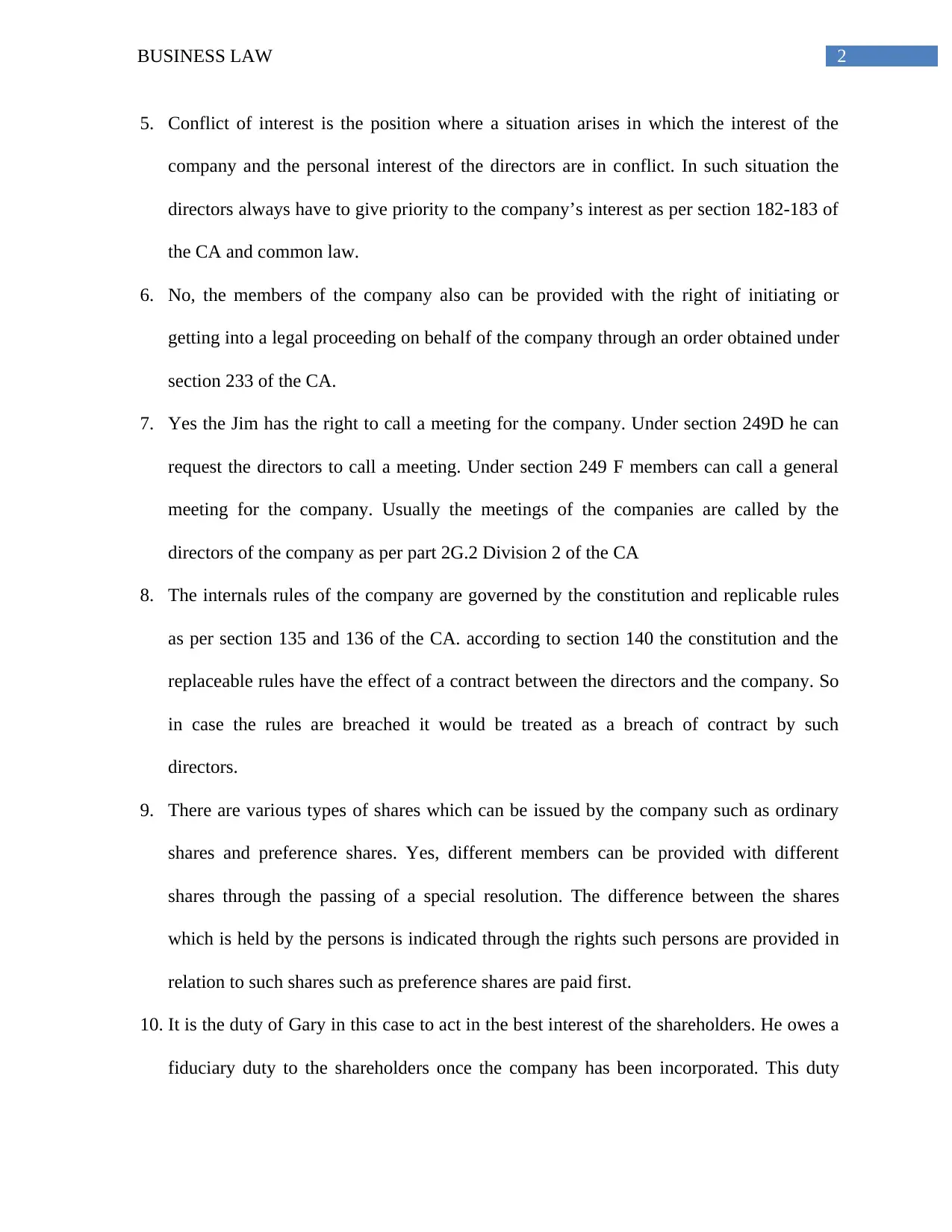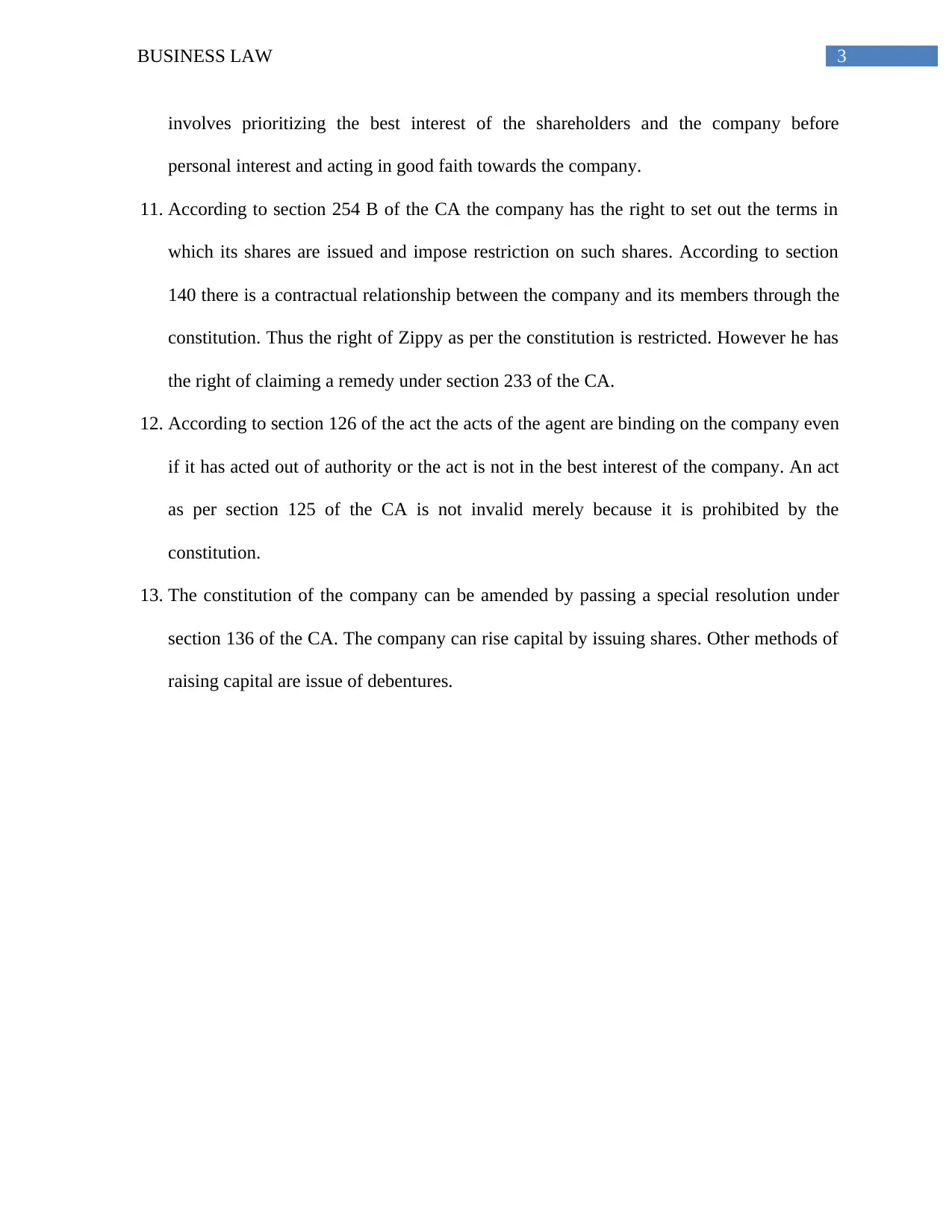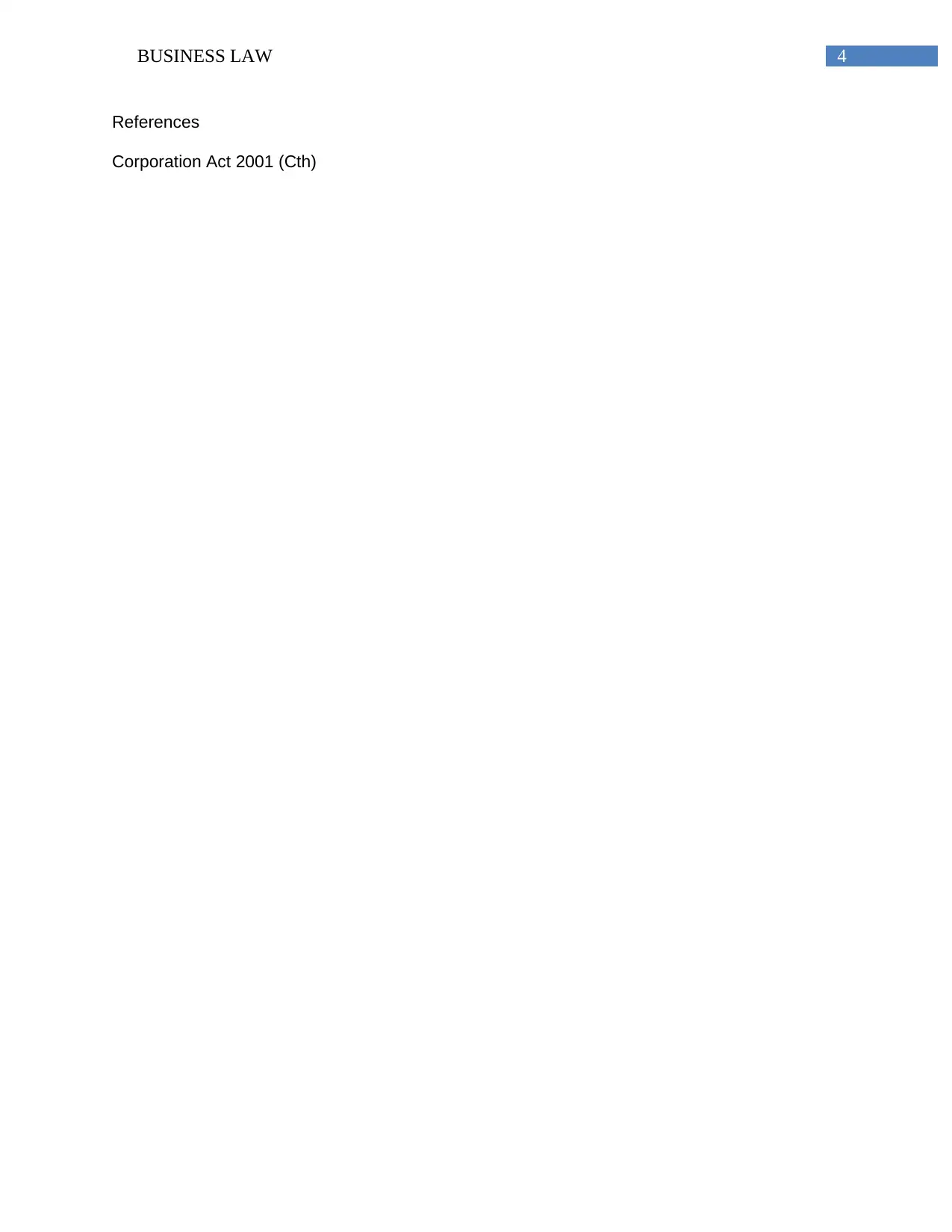Business Law Assignment: Australian Securities and Investment
VerifiedAdded on 2020/03/16
|5
|887
|39
Homework Assignment
AI Summary
This business law assignment solution addresses key aspects of corporate law and securities regulations. It begins by defining securities and their role in raising capital, referencing the Australian Securities and Investment Commission (ASIC) and the Corporations Act 2001 (Cth). The solution explores the rights of employers to take action against employees in cases of misconduct, referencing common law and statutory provisions. It clarifies the limitations on a company's ability to confiscate shares and outlines the recourse available to members who feel unfairly treated, including remedies under sections 232-234 of the CA. The document defines the roles and duties of company officers, particularly directors and secretaries, emphasizing the importance of avoiding conflicts of interest and prioritizing the company's interests. It also covers members' rights to initiate legal proceedings, call meetings, and the governance of internal company rules through the constitution and replaceable rules. The assignment further discusses various types of shares, the issuance of different shares to members, and the fiduciary duties of company directors. It also examines the contractual relationship between the company and its members, the binding nature of an agent's acts, and the process of amending a company's constitution. Finally, it mentions various methods of raising capital, including issuing shares and debentures.
1 out of 5












![[object Object]](/_next/static/media/star-bottom.7253800d.svg)